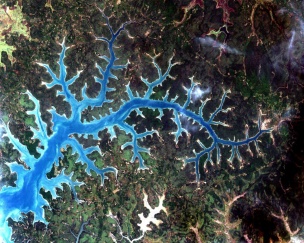Annual Conference on Measurement Technology (I): Energy & Environment

Technologies for measuring the adoption and impact of development interventions have seen substantial innovation over the past several years—examples include the use of microsatellite data for mapping weather patterns and agricultural yields, sensors for tracking behavior change, smart meters for recording real-time energy use, continuous emissions monitoring systems for measuring particulate matter, and platforms for smartphone- and tablet-based survey data collection. At the same time, network protocols for data management, visualization, and analysis have drastically improved.
Workshop objectives
On August 19th, 2014, over 70 engineers, social scientists, donors, and practitioners gathered in Berkeley to discuss how to best leverage these tools in development research, and to mainstream them in interventions designed to address climate change. Through a series of presentations, panels, and break-out sessions, participants had the opportunity to share knowledge regarding the use of existing measurement tools and technologies (including costs and limitations), and to discuss areas for further innovation and adaptation. Several potential partnerships between Bank staff, academics, and engineers emerged, and a durable network for future knowledge-sharing and partnership was created, as a result of this event.
Photo credit: crop of a Landsat 7 image of the Buba River in Guinea-Bissau, Africa. U.S. Geological Survey (USGS).
Agenda
Opening Remarks: World Bank Survey Operations & Opportunities for Collaboration, Talip Kilic (World Bank, LSMS)
Adoption of Irrigation Technology, Max Auffhammer (UC Berkeley)
Spatial Data Science: the 21st Century Mapping Toolkit, Maggi Kelly (UC Berkeley)
Innovations in Lidar, Tony Vodacek (RIT)
Planetary-Scale Geospatial Data Analysis with Google Earth Engine, Matt Hancher (Google Earth)
Panel A: Applications of remote sensing and mapping technology
Grid Monitoring Used in Rural Electrification Program in Kenya, Catherine Wolfram (UC Berkeley)
Using iButtons to Study Energy Efficiency in Mexico, Lucas Davis (UC Berkeley)
Urban Metabolism: Watching CO2 and NO2 Change, Ronald C. Cohen (UC Berkeley)
Monitoring Indoor Air Quality, Manuel Barron (UC Santa Cruz)
Sensors to Measure Water and Cookstove Use, Evan Thomas (Portland State)
Developing and Testing Monitors to Assess Uptake of Water and Sanitation Interventions, Tom Clasen (Emory)
Water Capture and Use: Ultrasonic Cistern Sensors in Northeast Brazil, Paul Gertler (UC Berkeley)
Panel B: Applications of sensors and sensor networks in the field
Open Data Kit Sensors: Enabling New Sensing Modalities for Commodity Mobile Devices, Gaetano Borriello (U Washington)
Monitoring Electricity and the Environment with Mobile Phones, Prabal Dutta (U Michigan)
Sensor and Sensor Network Panel, Alex Bayen (UC Berkeley)
Panel C: New technologies for distributed sensing
Understanding Crop Yields: Potential Contributions from Microsatellites in the Next 5-10 Years, David Lobell (Stanford)
Using Satellite Data to Understand the Social Impacts of Climate, Sol Hsiang (UC Berkeley)
Skybox Imaging, Jon Zemel (Skybox)
Panel D and E: Micro and Nano-Satellites

